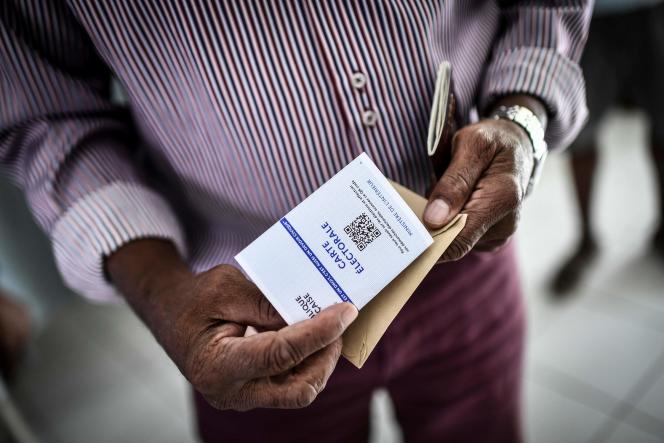The voters of Guadeloupe, Guyana, Martinique, Saint-Barthélemy, Saint-Martin, Saint-Pierre-et-Miquelon, Polynesia and the French abroad voted a day in advance , Saturday, June 18, for the second round of the legislative elections, due to jet lag.
In the overseas territories, fifteen parliamentary seats were at stake: four in Guadeloupe, four in Martinique, two in Guyana, a single constituency for Saint-Barthélemy and Saint-Martin, a single one for Saint-Pierre-et- Miquelon and three for Polynesia.
In Guadeloupe, the Secretary of State in charge of the sea, Justine Benin, was beaten by the various left candidate Christian Baptiste. She came first in the first round with 31.31% of the vote in the 2nd constituency. It was not enough. She obtains only 41.35% of the votes against 58.65% for her opponent and she will therefore have to resign from the government.
In the 1st constituency, the outgoing deputy, Olivier Serva (various left), was re-elected. He came well ahead, with 43.44% of the vote, ahead of another various left candidate, Dominique Biras, who obtained 15.02% of the vote in the first round.
In the 3rd constituency, the candidate of the National Rally, Rody Tolassy, had created a surprise by coming first in this first round, with 20.09% of the vote. But he did not pass the course of the second round against the outgoing deputy, Max Mathiasin (dissident MoDem).
In the 4th constituency, the socialist candidate and mayor of the commune of Saint-Claude, Elie Califer, had come out on top, with 38.61% of the vote. He is ahead of Nicolas Sarkozy’s former overseas minister, Marie-Luce Penchard (Guadeloupe united, responsible and united-Together!), who obtained 19.88% of the vote. The latter had withdrawn her candidacy, and Mr. Califer was therefore re-elected.
The participation rate in Guadeloupe is 28.23%, down from 2017 (30.65%), said the prefecture.
The only outgoing deputy to stand for re-election, Jean-Philippe Nilor (Democratic and Republican Left), had been put on ballot in the 4th constituency by the former president of the territorial community, Alfred Marie-Jeanne, 85, his former mentor. He won the duel, by 76.39% against 23.61%.
In the 1st constituency, the unlabeled candidate Jiovanny William (63.30%) won against the regionalist Philippe Edmond-Mariette. In the 2nd, two regionalist candidates opposed each other. It is Marcellin Nadeau who is elected with 71.29% of the vote against Justin Pamphile.
And finally, in the 3rd constituency, the diverse left candidate Johnny Hajjar (58.74%) was elected against Francis Carole.
The turnout at 5 p.m. was estimated at 20.10%, down from 2017 (22.27%), according to the prefecture, but up from the first round (15.10%).
The outgoing La République en Marche (LRM) deputy Lénaïck Adam (45.88%) was beaten by the candidate Davy Rimane (54.12%), supported by La France insoumise (LFI), in the 2nd constituency. “We take note of our defeat,” Mr. Adam told France-Guyane. Turnout (33.58%) is up from the first round (26.08%).
In the 1st constituency, Jean-Victor Castor (56.53%), a member of the independence Movement for Decolonization and Social Emancipation (MDES), supported by the New Anti-Capitalist Party (NPA), claimed victory over Yvane Goua ( 43.47%), spokesperson for two associations committed against insecurity and structural delays in the territory, figurehead of the anti-vax and anti-containment movement at the height of the Covid-19 pandemic. Turnout (29.92%) is also up from the first round (27.27%).
The candidate of the presidential coalition, Frantz Gumbs, came out on top, with 47.09% of the vote, in the first round. He unsurprisingly beat the miscellaneous right-wing candidate, Daniel Gibbs, in second place. The outgoing deputy Les Républicains, Claire Guion-Firmin, had been eliminated in the first round.
While the deputy of La République en Marche, Stéphane Claireaux, did not represent himself, the second round opposed the various right candidate of the local Archipel movement tomorrow, Stéphane Lenormand, to Olivier Gaston, close to LFI. The first obtained 50.36% of the votes. The turnout reached 55.95%, better than in the first round (53.45%) but almost twenty points lower than in 2017.

















